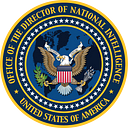 During the Intelligence Community’s 2017 Pride Summit in June, the Federal Bureau of Investigation’s acting director, Andrew McCabe, stepped to the podium and delivered a series of remarks highlighting why diversity and inclusion are crucial to the IC’s effectiveness and credibility.
During the Intelligence Community’s 2017 Pride Summit in June, the Federal Bureau of Investigation’s acting director, Andrew McCabe, stepped to the podium and delivered a series of remarks highlighting why diversity and inclusion are crucial to the IC’s effectiveness and credibility.
“The bedrock of the IC is our credibility,” he said. “The American people believe us, wherever we are — whether we’re in a courtroom testifying in front of a judge or if we’re on the Hill providing briefings about intelligence matters or we’re just standing around at the neighborhood cookout.
“And it is this belief in us that enables us to do the good that we do,” McCabe continued. “Our ability to maintain and strengthen that credibility and connect with Americans depends on our ability to represent them. And to represent them we must reflect the variety and the diversity that is the strength of this country.”
With that sentiment in mind, the IC recently released the Annual Demographic Report: Hiring and Retention of Minorities, Women, and Persons with Disabilities in the United States Intelligence Community for Fiscal Year 2016, which provides an in-depth examination of IC diversity as of September 30, 2016. The IC has provided the congressionally mandated report to oversight bodies annually since 2005. At the direction of the DNI, the report was released publicly for the first time in 2016.
“The bedrock of the IC is our credibility. The American people believe us, wherever we are — whether we’re in a courtroom testifying in front of a judge or if we’re on the Hill providing briefings about intelligence matters or we’re just standing around at the neighborhood cookout.”
- Andrew McCabe, FBI’s acting director
“We think this report is important because we need to make sure that we’re holding ourselves accountable for diversity and inclusion as mission-critical imperatives,” said Rita Sampson, chief of Equal Employment Opportunity and Diversity, Office of the Director of National Intelligence. “We took this opportunity to write the report in such a way that the Intelligence Community can be transparent and can affirm our commitment to diversity and inclusion.”
Improving minority representation
Although the IC has improved its minority representation over the past several years, minority representation (25 percent) in the IC is lower than comparative benchmarks such as the federal workforce (35.3 percent), civilian labor force (32.5 percent) and the U.S. population (38.2 percent).
In recent years, the IC has made incremental progress to increase minority representation in key areas such as hiring, promotions, awards, retention and career development opportunities. However, minorities continue to represent a relatively small percentage of those in core mission roles and senior level positions.
“For minorities, we are continuing to grow officers across the span of their entire careers and we’re trending in the right direction,” Sampson said. “We are trending in a positive way, maybe not nearly at a pace that we’d all like to see, but I think that we are really bringing on tremendous talent.”
Promoting women in the IC
Overall, the share of women hires increased slightly, from 38.2 percent in Fiscal Year 2015 to 39.2 percent in FY 2016. However, the greatest increase in the share of female hires was at the senior pay level, which increased from 18.2 percent to 23.3 percent. The share of women hires also increased at the GS/GG-14 grade level from 33.9 percent to 38.1 percent, and at GS/GG-12 from 33.6 percent to 35.8 percent.
In FY 2016, women earned a 44.9 percent share of promotions, which is proportionately higher than their representation in the workforce (38.5 percent). The same is true of honorary awards recognizing outstanding service to the IC. Women received a 41.8 percent share of such awards, also proportionately higher than their representation in the workforce.
This indicates the IC is making gradual progress to increase female representation in all aspects throughout the IC, particularly developing a pipeline for senior and leadership positions.
“The number of women in leadership roles keeps growing and our women are being promoted at a rate that’s higher than their representation within the organization itself,” said Sampson.
Increasing opportunities for persons with disabilities in the IC
Intelligence Community initiatives during Fiscal Year 2016 increased the representation of persons with disabilities across the community. Collaboratively, the IC continues to share best practices through IC Persons with Disabilities Working Groups, which ensure compliance with applicable federal guidelines for accessibility and equal opportunity for persons with disabilities. Workforce training is also a key component of the IC’s approach to increasing opportunities for persons with disabilities and removing barriers to access.
The IC is committed to the hiring, development and promotion of persons with disabilities. Hires for persons with disabilities increased slightly from 0.3 percent in Fiscal Year 2015 to 0.6 percent in FY 2016. Additionally, promotions for persons with disabilities increased from 5.2 percent to 6.2 percent. Overall, the representation of persons with disabilities in the IC workforce increased from 7.9 percent to 8.4 percent.
“One of our main focuses is on making sure that we are providing all of the necessary support to persons who might need an accommodation, becoming much more aware of what’s required in all of those areas,” Sampson said.
The bigger picture
While the Annual Demographic Report: Hiring and Retention of Minorities, Women, and Persons with Disabilities in the United States Intelligence Community Fiscal Year 2016 captures the demographics of the entire Intelligence Community, it also shows the numerous efforts underway to continually improve our diversity within the workforce, according to Sampson.
“When you take a look at this report you’ll see the number of efforts that are underway from both an outreach and recruitment perspective, from employees within the IC that are organized to better improve the workplace climate, making sure that we have a very inclusive climate and that there are opportunities for career advancement within the community once you join,” she said.
In 2016, the Partnership for Public Service once again recognized the IC as one of the “Best Places to Work in the Federal Government.” For the eighth consecutive year, the IC was rated by members of its workforce as a good place to work; employees are satisfied with their jobs and their organization. While embracing this recognition, the IC continues efforts to increase the representation of minorities, women and persons with disabilities in the workforce.
Leaders from all 17 IC elements’ EEO and diversity programs collaborated and developed the IC Equal Employment Opportunity and Diversity Enterprise Strategy, which presents an integrated approach to ensuring that the IC is poised to compete for and employ the best and brightest individuals from diverse backgrounds, experiences and intellectual perspectives. The Enterprise Strategy provides the framework for IC-specific diversity and inclusion initiatives.
“If we want to make change, we have to drive it,” said Adm. Michael Rogers, commander, U.S. Cyber Command, and director, NSA/Chief, Central Security Service, at the IC Women’s Summit in March. “We have to be willing to fight for change. Change isn’t easy and it seldom comes fast.”
During the last year, the IC implemented several strategic initiatives to increase the hiring, promotion and retention of minorities, women and persons with disabilities within the workforce. Additionally, four focus areas positively impacted the IC’s diversity and inclusion efforts:
Outreach and recruitment
The IC nurtured existing relationships and created new partnerships with minority-serving institutions and professional organizations. The IC also developed strategic relationships with targeted higher education institutions and feeder schools to identify and attract a more diverse talent pipeline.
“We have to continually bring talent into our pipeline and we are aware that not all communities know what the IC does,” said Sampson. “It’s important for us to put our faces out there in the community and to be able to engage with people and tell them about the many career opportunities that are available within the IC.”
Employee-led efforts
Strategic initiatives such as diversity summits and employee resource groups resulted in greater awareness of the importance of diversity and inclusion across the IC. Flagship events over the last year included:
· 2016 IC Women’s Summit, hosted by the FBI.
· 2016 IC Lesbian, Gay, Bisexual, Transgender and Allies Summit, hosted by the Defense Intelligence Agency.
· The first Leadership Pipeline Development Summit, focused on African-American and Hispanic IC Professionals, hosted by ODNI.
“Our employee-led efforts are critical because diversity and inclusion are everybody’s responsibility and we want to support employees who bring their creative talents to the table,” Sampson said. “We want to hear from our employees. We want to know what their concerns are. We want them to be involved in making the solutions to any challenges they might have for professional and career development. We want to use them as resources for outreach and recruitment efforts. We want to make sure that everyone is being groomed for potential leadership opportunities.”
Leadership and accountability
Many IC agencies, including the ODNI, have adopted mandatory unconscious bias awareness training for seniors and increased focus on management accountability through the adoption of diversity and inclusion performance objectives for all senior officers. IC leadership has also been held accountable for their diversity and inclusion efforts in briefings to the National Security Council.
“Every Intelligence Community professional must embrace the importance of diversity, inclusion and equal employment opportunity,” said Director of National Intelligence Dan Coats. “In doing so, we must also strive to maintain a workplace that is free from unlawful discrimination and harassment, taking measures to create and maintain an inclusive culture wherein individual differences are celebrated and innovation is unleashed.
“At every level of the ODNI, we must exhibit conduct and communications consistent with that of a model workplace — and we must be swift to correct behaviors that marginalize any member of the workforce,” he added.
“It’s important for us to put our faces out there in the community and to be able to engage with people and tell them about the many career opportunities that are available within the IC.”
- Rita Sampson, chief of Equal Employment Opportunity and Diversity, ODNI
Career development and advancement
The first African-American and Hispanic Summit focused on employment opportunities within the IC and proposed solutions to address the critical problem of low representation of African-Americans and Hispanics in IC leadership positions. Similarly, the fourth-annual IC Women’s Summit incorporated public and private sector best practices and lessons learned to increase networking opportunities, mentoring and sponsorship of women in the IC.
“I think we’re operating in a very dynamic global environment and we move at such a fast pace that sometimes we don’t pause and assess whether or not we’re taking care of our workforce,” Sampson said. “And there are tremendous rewards that come from serving in the intelligence community, but it’s just a re-commitment to taking great care of our people.”
Sampson added that something as simple as taking time to say thank you and to reward people for their hard work and sacrifices might be small gestures, but they go a long way.
The way ahead
While the Intelligence Community has more work to be done when it comes to diversity and inclusion, these initiatives show that the IC is serious about the subject.
“We always welcome feedback and collaboration about how we can improve even more, and we’ll continue to be transparent around the issues of diversity and inclusion,” Sampson said. “Transparency on diversity and inclusion efforts is a new direction for us but I think it’s a direction that we’ll continue to go in because we fundamentally understand that getting these critical pieces right overall makes us better. It ensures we are best positioned to support our nation’s security.”
